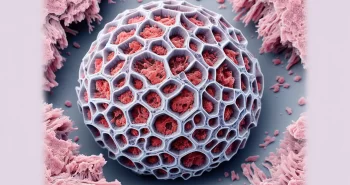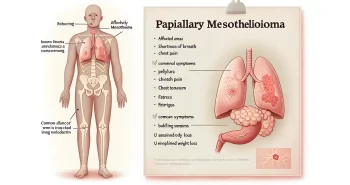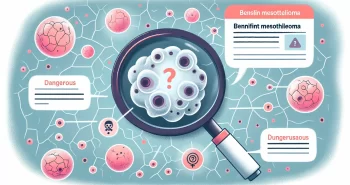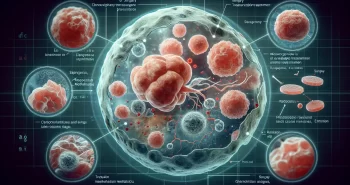Documenting Chemotherapy for Your Mesothelioma Claim
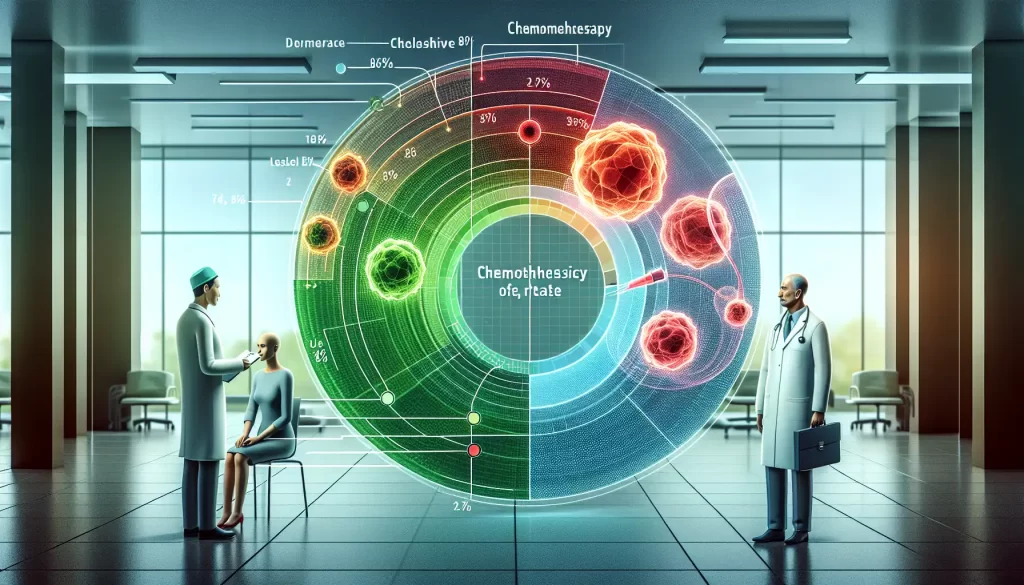
Chemotherapy for mesothelioma can play a role in your medical journey, but it can also support your legal claim. If you’ve been diagnosed due to asbestos exposure, documenting treatments like chemotherapy can strengthen your case for compensation. Learn how your chemo history can help secure the settlement you deserve.
Table of Contents:
![]()
![]()
Documenting Chemotherapy for Legal Claims
I want to share what I know about chemotherapy for mesothelioma. It’s important to get the details of this treatment and why it’s used for this kind of cancer.
Using Your Chemotherapy History for Your Claim
Chemotherapy is like a superhero with a mission to zap cancer cells across your body. You take these drugs either by swallowing them or getting them through a vein. Usually, you go through these treatments over a period of 3-4 weeks, with a little break thrown in so your body has time to chill out and recover from the drug effects.
Think of chemotherapy as the tough cop on the cancer beat, hunting down pesky cancer cells or holding back their growth so your tumor shrinks and you feel better. These drugs aren’t messing around. They stop the cancer cells in their tracks, breaking down their ability to grow and multiply until they bite the dust.
Why Is Chemotherapy Used for Mesothelioma?
Chemotherapy plays a starring role in treating mesothelioma because it targets those sneaky cancer cells that wander beyond the tumor’s home turf. It’s like a wide-net approach, going after even the hide-and-seek cancer cells that don’t show up in scans.
For mesothelioma, chemotherapy often teams up with other treatments like surgery and radiation. This tag team approach is about maximizing every chance to shrink tumors, ease symptoms, and give fighters in the ring against mesothelioma the upper hand in survival.
One thing that makes chemotherapy special for mesothelioma is how it’s delivered. Methods like intracavitary chemotherapy let the drugs get right up close with the cancer tissue—kind of like fitting a puzzle piece exactly where it belongs. Less hit to healthy tissues and fewer wrecking ball side effects make this approach smart and effective.
Grasping how chemotherapy works and why it is part of mesothelioma treatment can make a huge difference if you, or someone you care about, faces this battle. Knowing the ins and outs of chemotherapy can provide a sense of control and confidence as you step into the treatment arena.
How Your Chemo History Supports Compensation
Getting hit with a mesothelioma diagnosis is rough, but figuring out what chemo can do helps shape the treatment road ahead. Sure, chemo’s not the magic bullet that wipes out mesothelioma, but it’s a big player when it comes to keeping the disease at bay, easing symptoms, and, fingers crossed, helping folks stick around a bit longer.
Can Chemotherapy Cure Mesothelioma?
Alright, let’s keep it real – chemotherapy’s not a cure-for-all when it comes to mesothelioma. The main gig with chemo is to keep the cancer on a tighter leash, help ease those pesky symptoms, and try to squeeze some more time out of life.
How Chemotherapy Improves Survival Rates
Chemo ain’t magic, but it has indeed shown it can help folks live longer. There’s some solid data out there showing how combos of chemo drugs can shift the needle on survival stats. Take a peek:
| Chemotherapy Regimen | Median Survival | 1-Year Survival Rates |
|---|---|---|
| Cisplatin-Raltitrexed | 11.4 months vs. 8.8 months | 46% vs. 40% |
| Cisplatin-Pemetrexed | A staple for over 15 years, boosting those numbers for many | |
| Cisplatin-Pemetrexed-Bevacizumab | Offers improved progression-free survival and overall survival rates |
Getting the right drug mix, like pemetrexed with cisplatin, has become sorta standard in treating mesothelioma, and it’s showing some serious potential in bumping up patient well-being.
Factors That Affect Chemotherapy Success
So, what makes chemo a hit or miss? It’s not one-size-fits-all. The stage at diagnosis, your overall health, the specific chemo cocktail you’re on, and side effects all play a part. Sticking with your healthcare crew, staying on top of how you’re reacting to treatment, keeping those side effects in check, and having heart-to-hearts about hearing this out can make all the difference. Also, keeping an eye on new drugs like bevacizumab might just give you an edge.
With a closer look at chemotherapy’s role in treating mesothelioma, patients can navigate their treatment with a clearer picture of what’s ahead. Teaming up chemo with surgery or radiation may up the odds and bring a bit more control over the disease’s progression.
Chemotherapy Records to Include in Your Case
Chemotherapy’s like the frontline warrior in the fight against mesothelioma, taking the battle straight to those pesky cancer cells. It’s crucial for folks dealing with this disease, along with their families, to get a grip on the different kinds of chemotherapy on the table.
Systemic Chemotherapy vs. Intrapleural Chemotherapy
- Systemic chemotherapy is kinda like the long-distance runner of cancer treatments. It sends drugs through your bloodstream, letting them roam the body hunting down cancer cells wherever they may hide. It’s usually a go-to treatment for mesothelioma, aiming to reduce tumor size, slow down the cancerous spread, and help folks feel a bit better day-to-day (Asbestos.com).
- On the flip side, intrapleural chemotherapy is all about precision. It’s like a sniper, delivering drugs right into the chest area where those mesothelioma troublemakers gather. Using heated drugs ups their game, helping them focus on zapping those cancer cells (American Cancer Society).
Most Common Drugs Used for Mesothelioma Treatment
All-star drugs in the mesothelioma treatment league include pemetrexed, cisplatin, and carboplatin. These power players often team up in different combos to pack a stronger punch against the disease. The dream team of cisplatin and pemetrexed is often the first to hit the field against malignant pleural mesothelioma, showing better game stats than cisplatin running solo (NCBI PMC).
Latest Advancements in Chemotherapy for Mesothelioma
The world of mesothelioma chemotherapy isn’t standing still. It’s like science is working overtime, bringing new hope and better life quality for patients. One nifty trick has been adding bevacizumab to the cisplatin-pemetrexed tag team, which seems to offer a longer window of progression-free survival and overall better survival stats for those combatting mesothelioma (NCBI PMC).
Another cool kid on the block is heated intraperitoneal chemotherapy (HIPEC). After surgery, this technique steps in, delivering chemo straight to the abdominal cavity. It’s a clever move to tackle cancer leftovers, enlisting drugs like mitomycin, cisplatin, doxorubicin, oxaliplatin, and carboplatin (American Cancer Society).
Keeping up with these scientific breakthroughs and knowing your chemo options means patients and their doctors can craft a treatment plan that feels just right for the individual’s situation.
Gathering Evidence from Chemotherapy Sessions
Getting through chemotherapy for mesothelioma is a significant part of treatment. Knowing how chemo sessions are given, the typical side effects, and any changes you might need to make in your day-to-day life can help you get ready and cope better with it all.
How Chemotherapy Sessions Are Administered
Chemo for mesothelioma usually goes in through an IV line. Most treatment cycles last around 3 to 4 weeks, as Asbestos.com points out. You get a break afterwards so your body can bounce back from the strong chemo meds. By using the IV route, the drugs travel all over your body, hunting down cancer cells wherever they hide.
Sometimes, intracavitary chemo, like hot chemo right after certain surgeries for mesothelioma, gets the job done. This method puts the medicine straight into the trouble spot, making the treatment more effective while keeping side effects in check (Asbestos.com).
Common Side Effects and How to Manage Them
Chemo side effects can hit folks differently. But nausea, tiredness, hair loss, and lower blood cell counts are pretty usual suspects. It’s key to chat with your healthcare provider if anything odd pops up.
Handling these side effects might mean leaning on things like anti-nausea meds, good eats, and rest. Eating well, drinking enough fluids, and catching some Zs can ease some of the rough patches of chemo.
Lifestyle Adjustments During Chemotherapy
While going through chemo, tweaking your lifestyle can boost how you feel and make things a bit smoother. Here are a few suggestions:
- Dietary Modifications: Eating a balanced diet filled with fruits, veggies, and lean meats can help keep your immune system strong and speed up recovery.
- Physical Activity: Light exercises like walking or some simple stretches can keep muscles strong and help you feel better overall.
- Emotional Support: Leaning on family, friends, or support groups can give you the comfort and encouragement you need during this tough time.
Listening to your own needs and practicing self-care during chemo is crucial. A supportive atmosphere and honest talks with your healthcare team can really make a difference. For more about mesothelioma treatment, look at our pieces on top mesothelioma treatment centers and why you need the best mesothelioma attorney.
Legal Documentation of All Treatments
Deciding on the right treatment for mesothelioma can feel like navigating a maze with no clear path. Knowing the differences between chemotherapy and other methods makes it easier to decide what’s best. Let’s break down how surgery, radiation, and new-age treatments differ from the chemo route.
Surgery and Chemotherapy: A Combined Approach
Sometimes, just like peanut butter and jelly, combining surgery with chemotherapy makes everything better. Surgery takes on the heavy lifting by removing as much of that pesky tumor as it can, while chemotherapy comes in with the mop and bucket, cleaning up those sneaky cancer cells trying to hide. This tag-team approach, usually called multimodal therapy, sounds like a strong contender if you’re aiming for improved wins against cancer and longer survival lap around the sun.
Sitting down with a specialized cancer team helps in understanding if this combo is your confidant. They’ll take a close look at the specifics of your unique case and explain the ins and outs. After all, no two mesothelioma cases are twins.
Radiation vs Chemotherapy: Which Works Best?
Think of radiation and chemotherapy as two different superhero powers. Chemo operates on a whole-body level, injecting anticancer drugs into your system like a sprinkling rainstorm, whereas radiation is more of a laser-focused, high-energy zap to a targeted area. So, which caped crusader do you want in your corner?
The choice often hinges on factors like how far along the disease is, where that tumor is squatting, and the patient’s general well-being. Sometimes, both might tag-team to pack a more effective punch.
Before placing bets on radiation or chemo, having an open-heart chat with your healthcare squad is wise. They’ll go over the pluses and minuses of both and help tailor a plan that echoes your health priorities.
Financial and Legal Options for Mesothelioma Patients
Dealing with the money and legal stuff when you have mesothelioma can feel like a full-time job. Getting the hang of what chemo costs and sussing out ways to get some compensation—it’s huge for folks wrestling with this nasty cancer.
The High Cost of Chemotherapy and Insurance Coverage
Chemo is a biggie in battling mesothelioma, and ain’t it the truth that it’s pricey! We’re talking about a whopping $95,715.26 on average, according to Mesothelioma Hope. But keep in mind, the bill’s bottom line shifts if you factor in stuff like your insurance, how long your treatments are, and the drugs you’re put on.
Insurance is what most of us turn to, trying to wrestle down those big chemo bills. Getting a grip on your insurance—co-pays, deductibles, all that jazz—can clear up what’s coming out of your pocket. You’d be smart to join forces with your doctors and insurance peeps to make sure everything’s understood and to see if there might be any financial help on the table.
How to File a Claim for Compensation After a Mesothelioma Diagnosis
Getting a diagnosis of mesothelioma? Many start hunting for legal avenues to lighten the financial punch—doctor’s fees, no pay checks, the works. Claiming compensation is a lifeline.
If you’re thinking about making a claim after your diagnosis, chatting with legal eagles who zero in on asbestos cases is the way forward. Places like the American Cancer Society offer solid info and pointers about the legal side, what to do about filing and getting compensated.
These legal experts in mesothelioma are your guides through the claim maze—can you even do it, and if so, what’s it taking? They’re on your side for fighting for the funds needed to pay for your care and secure peace of mind for you and your family.

